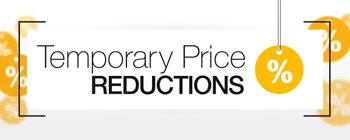Memory Research Reaffirms Common Study Strategy

By Gina Wynn
If you’ve ever tried to recall information for an important test, you know that some of your memories are more vivid than others. And if it’s a mid-term or final exam — when months have passed since you first learned the information — the details that you remember are even foggier.
Researchers from the Universities of Glasgow and Birmingham in the United Kingdom set out to help us learn how to optimize our memories by uncovering what information in a memory is retained over time and which parts get lost. They published their results in the May 26, 2021, issue of Nature Communications.
Get the Gist?
Scientists have been theorizing about how our memories work for years. The new study highlights the “gistification” of our memories, demonstrating that they become less vibrant and detailed over time, with only the central gist being preserved, according to a University of Birmingham news release.
The gist gets reinforced when we frequently recall our recent experiences — like when you quiz yourself prior to an exam using flash cards or other methods. This helps meaningful information stick longer, especially when followed by periods of rest and sleep.
Memory Milestone
Until now, scientists have found it difficult to study memory in a laboratory setting to gain a better understanding of how memories differ from the original experiences and how they transform over time. But by developing a simple computerized task, the research team was able to gather the data they needed. The task measured how quickly people can recover certain characteristics of visual memories when asked to do so.
Participants were shown word–image pairs and asked to recollect different elements of the image as fast as possible when prompted by the word. The test was then repeated two days later. Researchers took note of their recollection of perceptual details about the image like whether it was colored or greyscale, and semantic elements about the image like whether an object was animate or inanimate. The pattern of reaction times indicated that participants remembered meaningful, semantic elements more quickly than insignificant, perceptual ones.
The Test of Time
The results also confirmed that with the passage of time and repeated remembering, bias toward more significant, semantic memories becomes stronger. In addition, when participants were tested after a two-day delay, their ability to recall semantic content of the images remained relatively constant, although their speed at recalling details of perceptual questions slowed.
This reaffirms what most students have already discerned: it gets more difficult to recall the details you need to know for an exam as time passes. But the findings also suggest that you can help solidify the information you want to retain by using common study techniques.
Societal Benefits
In addition to reinforcing tried and true study habits, the research can benefit healthcare and law enforcement. It provides a tool for doctors treating patients with post-traumatic stress disorder whose memories can be disabling. For officials who work with eyewitnesses, the findings can also help them understand how frequent interviews and repeatedly recollecting the same event may cause bias.
The research also teaches us that by frequently recalling and reminiscing about our most cherished memories, we can help keep them alive.
Discussion Questions
- What are some strategies that can help you remember important information?
- Test your memory by playing a game of Concentration or What’s Missing?
Vocabulary
- Gist
- Perceptual
- Semantic

